MAGAZINE In many parts of the world, malaria continues to kill millions — yet experts are still denied access to vital research. Bart Knols reports


MAGAZINE In many parts of the world, malaria continues to kill millions — yet experts are still denied access to vital research. Bart Knols reports

Gore Vidal, who died this week, was often scathing in his attacks on US foreign policy. In April 2002, Index on Censorship magazine was the first English-language publication to feature this essay, written after 9/11

The Syrian regime has gone to great lengths to silence the satirical commentary of Ali Ferzat
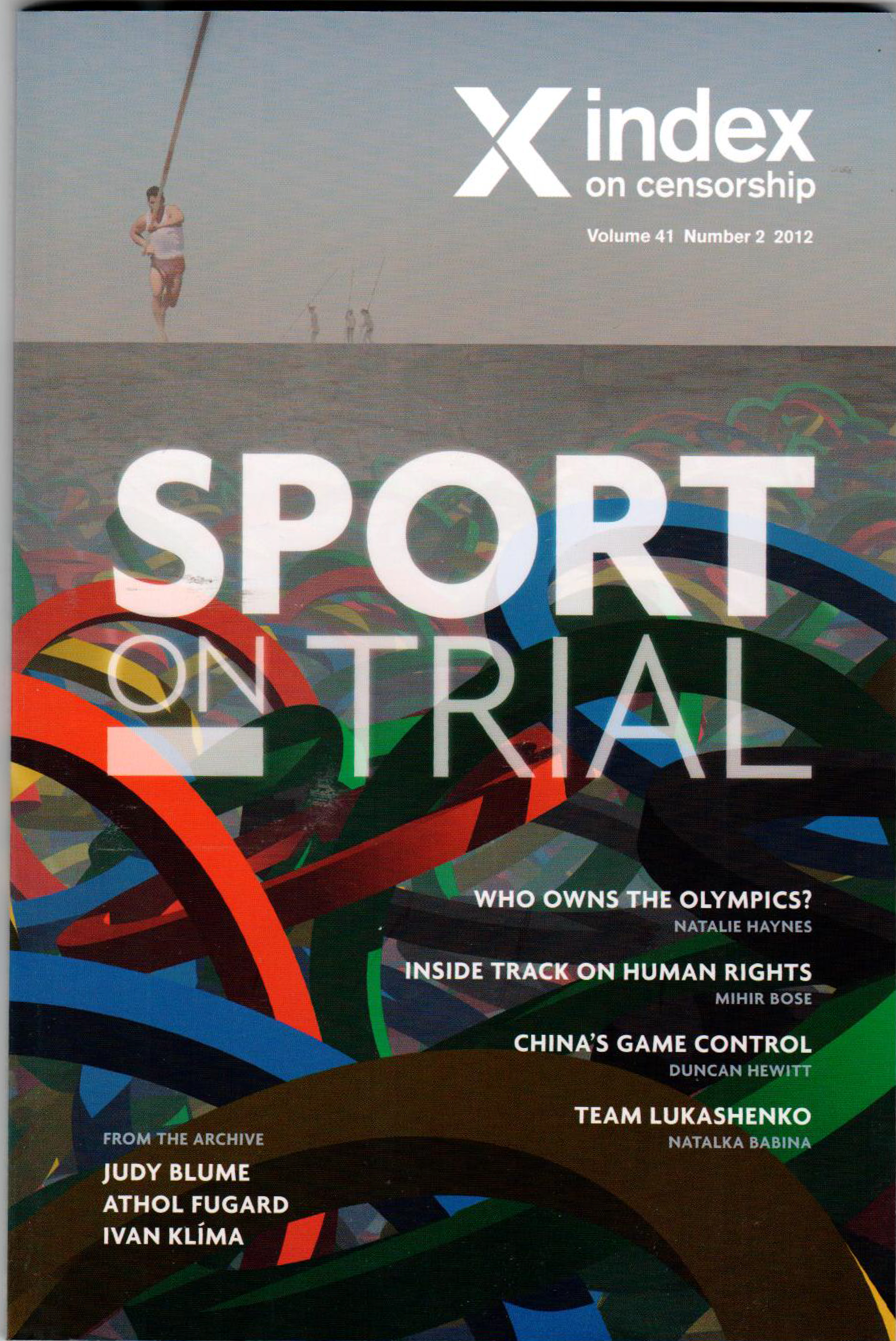
Mihir Bose asks whether human rights should be a criterion for hosting coveted international sporting events

Index on Censorship visits the ethical pit stops to ask whether sporting events can be good for democracy.
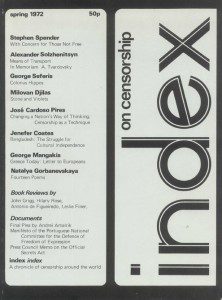
Robert McCrum considers Index’s role in the history of the fight for free speech, from the oppression of the Cold War to censorship online
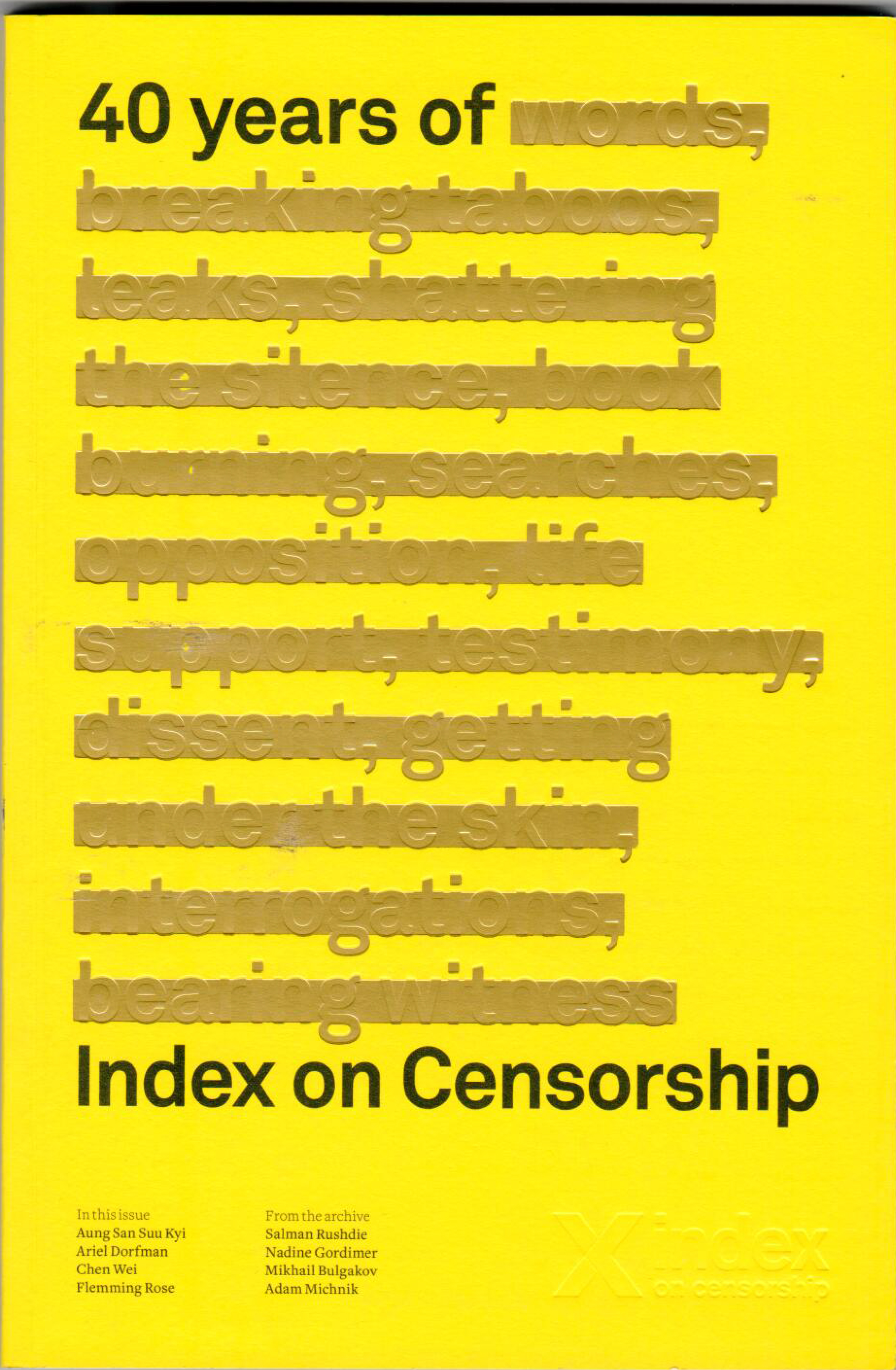
Our special report looks back on Index’s role in the history of the fight for free speech, from the oppression of the Cold War to censorship online.

To celebrate Index’s 40th birthday, our archive is open to the public for 40 days from 26 March. It’s a unique literary heritage, a roll-call of the greatest authors in the 20th century canon standing up for free expression.
In 1994, South African writer, activist and Nobel Prize winner Nadine Gordimer witnessed the end of apartheid in South Africa
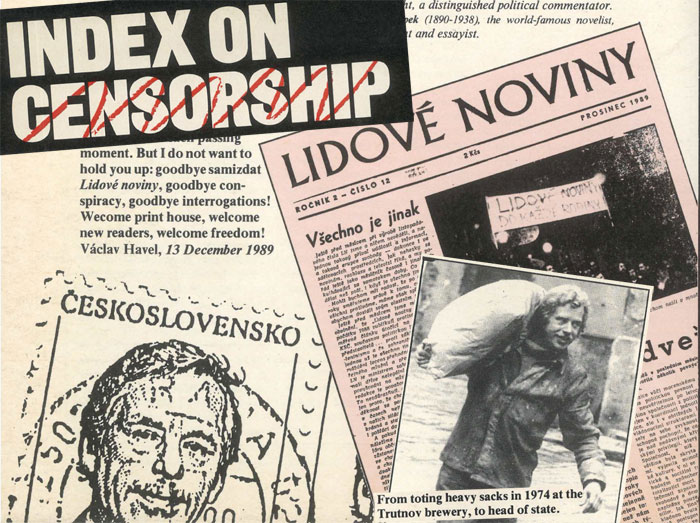
This piece by Vaclav Havel was published in Index on Censorship in 1984 after he was released from prison in March 1983, having served almost four years on charges of "subversive activities against the Socialist state" of Czechoslovakia. The...
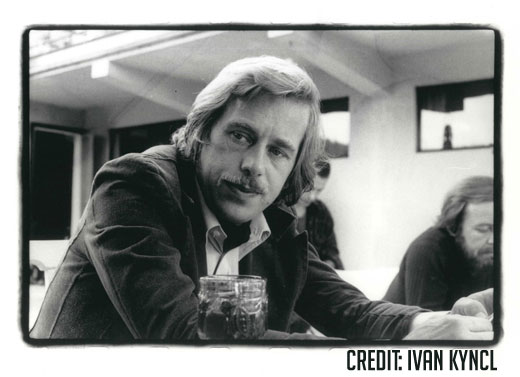
How are ordinary, decent people to react to the imposition of a repressive regime, how much should they risk in showing their opposition to it? These questions were raised by Ludvik Vaculik in a feuilleton he wrote in December 1978, which brought...
A quarterly journal set up in 1972, Index on Censorship magazine has published oppressed writers and refused to be silenced across hundreds of issues.
The brainchild of the poet Stephen Spender, and translator Michael Scammell, the magazine’s very first issue included a never-before-published poem, written while serving a sentence in a labour camp, by the Soviet dissident Aleksandr Solzhenitsyn, who went on to win a Nobel prize later that year.
The magazine continued to be a thorn in the side of Soviet censors, but its scope was far wider. From the beginning, Index declared its mission to stand up for free expression as a fundamental human right for people everywhere – it was particularly vocal in its coverage of the oppressive military regimes of southern Europe and Latin America but was also clear that freedom of expression was not only a problem in faraway dictatorships. The winter 1979 issue, for example, reported on a controversy in the United States in which the Public Broadcasting Service had heavily edited a documentary about racism in Britain and then gone to court attempting to prevent screenings of the original version. Learn more.